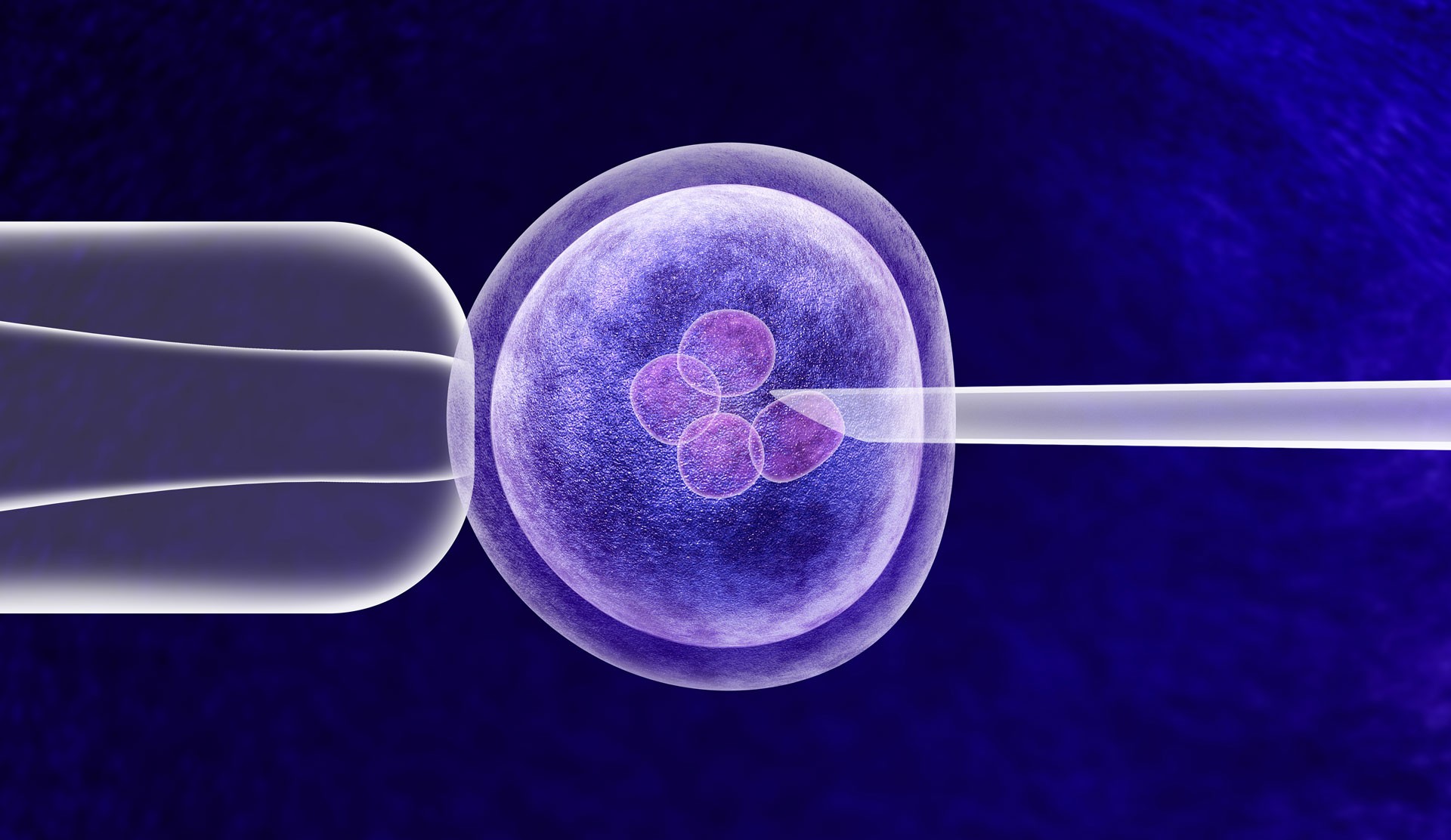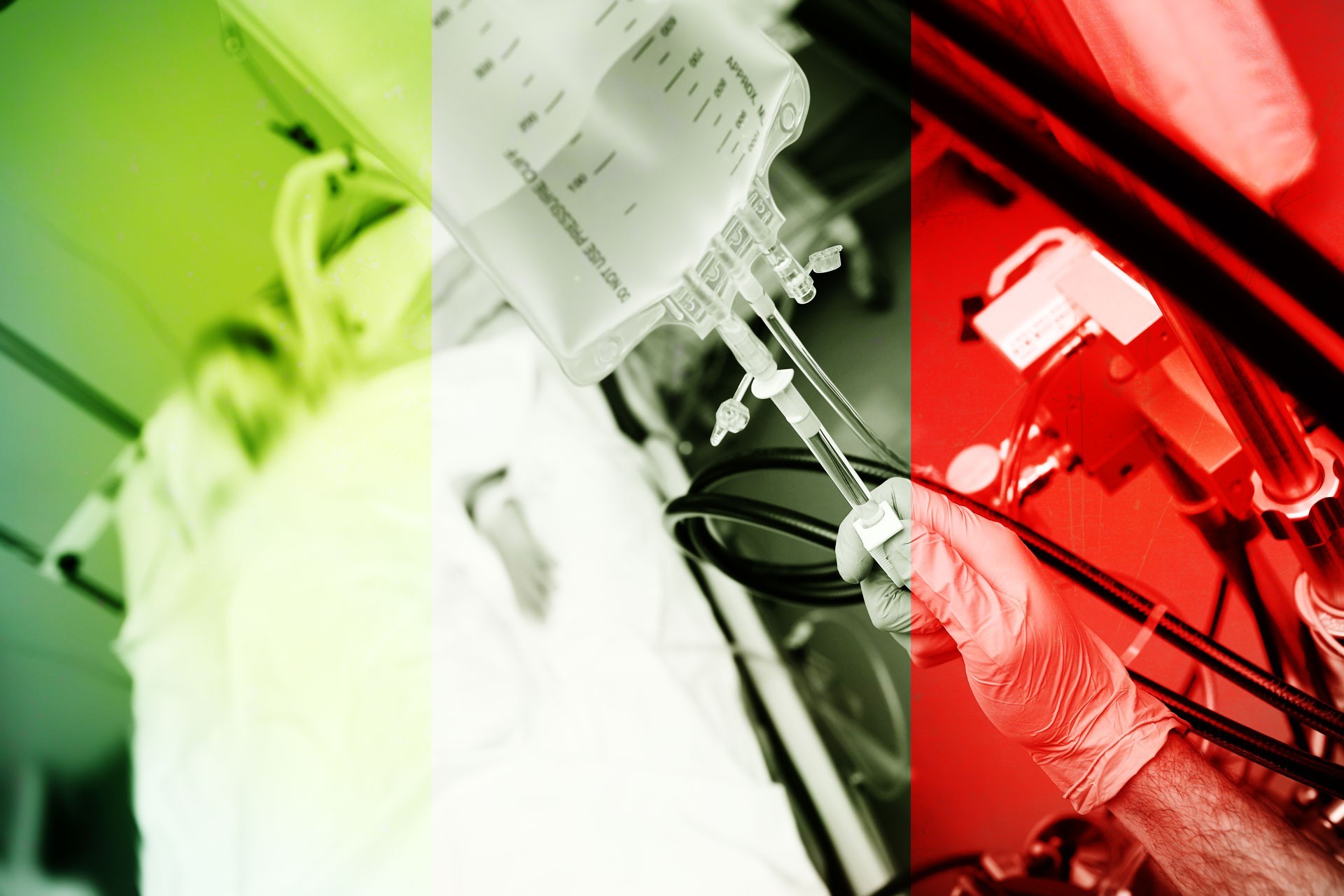
by Claire Anne Brule | March 25, 2022 | Bioethics, Medically Assisted Procreation, News

A recent editorial in the journal Nature has highlighted the alarming rise of complex genetic testing for selecting human embryos in vitro.
The emergence of companies offering prospective parents tests based on a “polygenic risk embryo score” prior to in vitro fertilization (IVF) has alarmed geneticists and bioethicists. Moreover, the European Society of Human Genetics, the European Society of Human Reproduction and Embryology and the American College of Medical Genetics have all advised against using these tests in clinical practice.
Simple genetic tests are already used in France for Preimplantation Genetic Diagnosis (PGD) to screen for rare and serious diseases related to single gene mutations. In the UK, these tests have been approved for more than 600 inherited disorders.
Now, companies such as Myome in California, claim that almost all the DNA of a days-old embryo can be deciphered or “reconstructed”, making it possible to predict the risk for many common diseases, even those that develop decades later, or those influenced by dozens or even hundreds of genes. With current technologies, it is very difficult to accurately sequence a whole genome because of the tiny volume of genetic material available in a few cells biopsied from an embryo for analysis. To be able to make these predictions the company uses another method, described in an article: sequencing the DNA of both parents, and “re-building » the embryo genome using these data. Thus they sequenced the genomes of 10 couples who had babies through IVF. They used the data collected from the couples’ embryos, 110 in all, which had already undergone simple genetic testing to check the number of chromosomes and look for some well-identified genetic abnormalities.
By combining these embryo data with the more complete parental genome sequences, and applying statistical and population genomic techniques, the researchers believe they are taking into account the genetic shuffling that occur during reproduction. They have compared their theoretical results with the genome of the few children born among these couples and they consider the results to be encouraging.
Nonetheless, the reliability of these predictions is completely dubious, and the societal risks and implications are not sufficiently addressed and explained.
The risk scores have been developed on the basis of predictions which may prove to be incorrect. One problem is that the scores currently available are not based on an appropriately diverse subset of people since the database is composed of DNA studies from populations of overwhelmingly European ancestry. They would be less precise with other groups of population. Moreover, creating an embryo risk score based on adult DNA is not an easy task, given the complexity of genetics and because environment has a high impact in disease occurrence.
According to Shai Carmi, a statistical geneticist at the Hebrew University of Jerusalem and his coworkers: “It is difficult to say if this will make sense”.
In their research, computer modeling was used to assess whether height and IQ can be boosted by selecting embryos using polygenic risk scores for either trait, and found that generally, it doesn’t work.
The results are sometimes predictable only due to gene interactions which are still not well understood between the multiple genetic and environmental factors accounting for diseases. Second, scientists do not yet fully understand why some embryos, selected because of a lower risk for one disease, are actually more vulnerable to other infections. Norbert Gleicher, an infertility specialist at the Center for Human Reproduction in New York, worries about the unintended consequences of applying polygenic risk scores to embryos, and calls this practice unethical, “You can achieve omission of one disease but at the same time, doing this, induce another disease.” It is known that a DNA sequence associated with one beneficial characteristic can also increase the risk of a detrimental one, and that some genes identified as predisposing to a certain pathology protect against others.
Finally, these polygenic risk scores are being used to predict the risk of disorders that occur later in life. However, there is no way of knowing what treatments or preventive steps will be available by the time these embryos reach adulthood.
Despite these serious uncertainties, these polygenic risk assessments are already being marketed to consumers in some countries, in the United States and Japan for instance, without clearly informing the individuals on these techniques’ uncertainties and risks. The authors of the Nature editorial declared “…the scores of such assessments could be harmful. They could trigger the unnecessary destruction of viable embryos or induce women to undergo extra cycles of ovarian stimulation to collect more oocytes.”
The world market of preimplantation genetic testing (PGT), associated with that of artificial procreation and IVF is booming. It was already estimated at $75 million in 2018.
![[ Press Release ]- Humanity First : Alliance VITA’s Top 20 Priorities for 2022](https://www.alliancevita.org/wp-content/uploads/2022/02/Header-elections2022-1080x675.png)
by Claire Anne Brule | March 9, 2022 | Press Releases
![[ Press Release ]- Humanity First : Alliance VITA's Top 20 Priorities for 2022 2 header elections2022](https://www.alliancevita.org/wp-content/uploads/2022/04/Header-elections2022.png)
PRESS RELEASE – March 9, 2022
Humanity First
Alliance VITA’s Top 20 Priorities for 2022
Just one month before the upcoming first round of the French presidential election, Alliance VITA has just announced its top 20 priorities for 2022 and addressed them to all presidential candidates. The focus is placed on humanity which should be at the heart of all public policies.
In a society dominated by technology, economics and finance, the human being is gradually becoming the variable compelled to adjust to the all-powerful, globalized market. However, the Covid pandemic has also revealed that the French cherish social cohesion, family relationships and protecting the most vulnerable.
The real challenge at stake in the presidential and legislative elections is to focus on humanity, in particular by respecting the intangible ethical principles of human ecology.
Alliance VITA has a long experience in helping people confronted with the harships of life and a large number of contributions from its members. This allows them to challenge the presidential candidates with 20 urgent priorities and 3 main themes:
- Developing Intergenerational Solidarity
- Write the long promised and finally abandoned Advanced Age and Autonomy law
- Intensify suicide prevention
- Firmly reject euthanasia and “assisted suicide”
- Create a parliamentary inquiry commission to investigate on the dying conditions in France
- Make palliative care accessible for everyone
- Create visitation rights in nursing and retirement homes for the sick, the elderly and the disabled
- Fostering an Ecosystem to Help Families
- Restore Family Allowances for all families rather than depending on the income of the family to make the family policy fully effective
- Boost the family policy by offering support for couples
- Create specific assistance for young pregnant female students
- Reform parental leave for education
- Facilitate paternity leave by making it more flexible
- Fight against infertility
- Reach a universal ban on surrogacy because there is no such thing as “ethical” surrogacy
- Make society more inclusive for people with disabilities
- Help women avoid abortion through a comprehensive prevention policy
- Protect minors against sexual violence and pornography
- Supporting Technological Innovations to Guarantee the Protection of the Most Vulnerable
- Extend the precautionary principle applied to environment to include the protection and integrity of human beings, to have an integral ecological approach
- Ensure adequate protection of the human embryo
- Ensure equal access to technology for everyone, and appropriately use Artificial Intelligence (AI) in healthcare
- Secure our digital footprint.
Taken together, these 20 priorities are designing a new target for France. Even after the presidential election they need to be promoted and advertised to the elected President so that he can take into consideration these issues which are so fundamental for France.
Refer to this link for the proposed platform priorities: https://www.alliancevita.org/elections2022/ and the press kit here.
Press Contact +33 6 67 77 14 80contactpresse@alliancevita.org
![[ Press Release ] – Alliance VITA Denounces French Abortion Law : A Hard Hit Against Women](https://www.alliancevita.org/wp-content/uploads/2022/02/parlement-1080x675.jpg)
by Claire Anne Brule | February 23, 2022 | Abortion, Press Releases
![[ Press Release ] – Alliance VITA Denounces French Abortion Law : A Hard Hit Against Women 3 cp](https://www.alliancevita.org/wp-content/uploads/2022/03/CP.jpeg)
PRESS RELEASE – February 23, 2022
Abortion: Alliance VITA denounces the new French abortion law as a hard hit against women.
The highly emotional issue of abortion deserves better than a phony debate and should never be treated lightly, neither from a simplistic perspective nor from the controversial angle of invoking a “right”. This law ignores the hardships of many pregnant women; those who are faced with an unexpected pregnancy, and who reluctantly abort under pressure, for lack of available alternatives.
For Alliance VITA, further extending abortion deadlines is a harsh offense to women whereas no provision is made in this law to help women who want to keep their baby because they are aware that a life is at stake. Parliament tackled this sensitive issue of abortion head-on, without any prior discussion or reflection for this irreversible act where lives are at stake. The government backed this law and pushed it through, however inadequate and completely out-of-touch with women’s real life.
It is high time for the public authorities to recognize that it is illusory to think that all women abort according to their own free will and by deliberate personal choice. It has been clearly established that abortion is a distinctive marker of social inequality and precariousness. The women with the lowest standards of living abort more as shown in the 2020 DREES study (Department of Research, Studies, Evaluation and Statistics). The real priority is to protect women from all kinds of violence, including pressure from their partner to abort, but also from social and economic hardships, that can weigh on women at such a vulnerable time.
With France’s presidential election just two months away, Alliance VITA is calling upon the candidates to acknowledge the urgent need for a genuine abortion prevention policy. This would resolve a large number of personal tragedies by offering alternatives other than abortion.
This primarily involves:
- Providing information on contraceptive efficacity and its’ potential mishaps: 72% of the women who abort were using contraception when they discovered their pregnancy.
- Offering support and individual backing for pregnant women in difficulty.
- Protecting women from the pressures and violence they may experience which may lead them to abort.
- Briefing health staff and social worker actors on the pressure put on pregnant women.
- Providing exhaustive information, in abortion consultations, regarding maternity rights and assistance for pregnant women.
- Upgrading the government policy for families, to include appropriate measures that enable young women to reconcile family life, education, and their professional career.
- Providing special assistance to young female students, since 20–29-year-olds account for the highest abortion rates, and 85% of unplanned student pregnancies result in abortion
- Providing young female studants with financial help to continue their education, as well as housing and childcare solutions, and adaptations of their educational course to their situation as pregnant women and young parents.
- Extending government subsidies to student couples who are expecting a child and/or who are young parents.
- Implementing individualized backing and social assistance plan similar to « SAMELY » [1] provided for high school girls.
[1] SAMELY is a system created by mothers of high-school students, (”PEP75”) supported by the Ile-de-France Region and the French Academy in Paris, which provides an inclusive global backing with individualized support for high school girls during their pregnancy and for young mothers to keep up with their schoolwork.
Press Contact +33 6 67 77 14 80 contactpresse@alliancevita.org

by Claire Anne Brule | February 22, 2022 | End of life, Euthanasia and Suicide, News

On February 15, 2022, the Italian Constitutional Court rejected a request for a referendum on euthanasia, alleging that the text does not ensure the basic protection of human life, especially for the vulnerable ones.
At the end of summer 2021, the petition was submitted to the Italian Constitutional Council with signatures from 750,000 citizens, which is more than the required number of 500,000 to organize a referendum.
This latest decision has been handed down at an uneasy moment.
In 2017, following the arrest of a member of the Italian Radical Party, Marco Cappato, an appeal was filed with the Italian Constitutional Court. Cappato accompanied the Italian disc jockey Fabiano Antoniani, or DJ Fabo, to a Swiss euthanasia clinic. The DJ’s euthanasia request had been widely publicized when he was left blind and tetraplegic after a serious car crash in 2014.
In 2018, the Court urged the Parliament to clarify the law within a year. Finally, the Parliament having failed to respond, the Court rendered its judgment on the Cappato case in 2019. It judged that the protection of life must be legally maintained, but simultaneously declared that under certain conditions, assisted suicide would not be punished if it was carried out voluntarily and autonomously. The Court justified this verdict saying that medical progress bring up new situations.
The judgment thus allows assisted suicide under four criteria. The patient requesting euthanasia must be on “life-support treatment, suffering from an irreversible pathology, undergoing unbearable physical or psychological suffering, but fully able to make unhindered and conscientious decisions”.
Afterwards, the Court commanded the Parliament to pass a legislation congruent with its latest decision. In November 2021, when no law had yet been voted, an ethics committee allowed assisted suicide for a 43-year-old man who had become tetraplegic 10 years earlier following a traffic accident.
Finally in December 2021, a euthanasia bill was tabled and is currently debated by the Parliament before going on to the Senate.
The Constitutional Court’s 2019 decision to decriminalize assisted suicide has obviously paved the way for this new legislation. The bill includes a conscience clause for caregivers, the approval of the patient application by a public health ethics committee, and the diagnosis of an illness in its terminal phase. The “protocols and timelines for self-administering the lethal substance” are to be managed by the Ministry of Health.
This legislation is controversial, and many believe that the bill goes too far. In particular, lawyers are divided on whether the Court has the right to specify the conditions for assisted suicide.

by Claire Anne Brule | February 16, 2022 | antispeciesism, News

On February 13, under the tradition of direct democracy, voters in Switzerland overwhelmingly rejected a national referendum on the ban on medical testing on animals (79,1% against).
In the canton of Basel, voters were called upon to decide whether to amend their constitution to add the basic rights of “non-human primates”.
In the anti-speciesism language, monkeys are referred to as “non-human primates”, in order to establish continuity between the humans and other species. Another anti-speciesism expression is “non-human animals”.
Triggered by the animal rights group Sentience, the vote is on whether to give primates the basic right to life and the right to physical and mental integrity.
The notion of sentience is central to the philosophy of anti-speciesism activists. The capacity to suffer is the criterion used to give a moral status, and consequently the status of the person. In a famous text, Jeremy Bentham, an eighteenth-century English philosopher and jurist, writes: “What else is it that should trace the insuperable line? Is it the faculty of reason or perhaps the faculty of discourse? But a full-grown horse or dog is beyond comparison a more rational, as well as a more conversable animal, than an infant of a day or a week or even a month, old. But suppose the case were otherwise, what would it avail? The question is not, ‘can they reason?’ nor, ‘can they talk?’ but, ‘can they suffer?”
The issue of granting animals a fundamental right to life would impact the practice of euthanizing animals and would lead to legal dilemmas for those who deal with animals. The director of the Basel zoo declared in a press interview: “If two animals fight and one of them is seriously injured for example, the injured animal will have to suffer because according to this idea, we must respect the animal’s right to life”.
Thus, this discussion indirectly highlights the close ties between the right to life and prohibiting euthanasia. The importance given to feeling underlines the close ties between living and suffering, the magnitude of the human being demonstrated by the attentiveness and care, as well as the capacity to develop a very advanced technology to heal so many patients. This is a point that clearly separates us from other species and reminds us that euthanatizing animals is in no way equivalent to euthanizing humans.
For the moment, the 74.7% of the voters in this canton disagreed with the idea and voted “no” to giving basic fundamental rights to primates.



![[ Press Release ]- Humanity First : Alliance VITA’s Top 20 Priorities for 2022](https://www.alliancevita.org/wp-content/uploads/2022/02/Header-elections2022-1080x675.png)
![[ Press Release ]- Humanity First : Alliance VITA's Top 20 Priorities for 2022 2 header elections2022](https://www.alliancevita.org/wp-content/uploads/2022/04/Header-elections2022.png)
![[ Press Release ] – Alliance VITA Denounces French Abortion Law : A Hard Hit Against Women](https://www.alliancevita.org/wp-content/uploads/2022/02/parlement-1080x675.jpg)
![[ Press Release ] – Alliance VITA Denounces French Abortion Law : A Hard Hit Against Women 3 cp](https://www.alliancevita.org/wp-content/uploads/2022/03/CP.jpeg)



